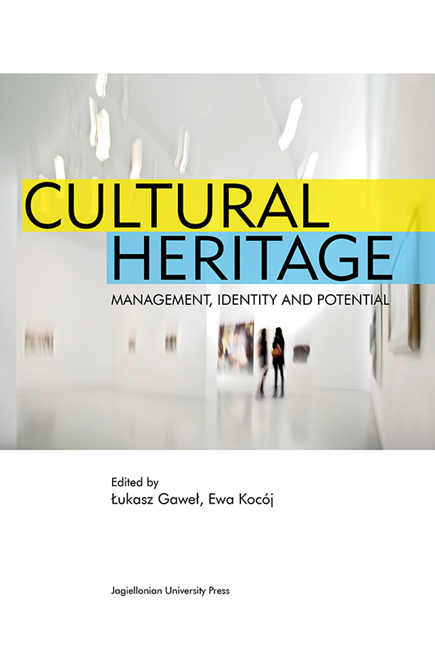Book contents
- Frontmatter
- Contents
- In Lieu of an Introduction
- Towards New Areas of Heritage and Cultural Heritage Management (Introduction)
- Pandora's Box or The Holy Grail? On Managing Cultural Heritage
- Cultural Heritage Within Postmodern Reality
- Legal Protection of Intangible Cultural Heritage. The Concept of the Safeguarding of Expressions of Folklore
- Cultural Heritage as a Shared Resource. The Role of Collaboration Between Stakeholders in Cultural Heritage Management
- Urban Exploring – City – Heritage – Identity
- The Thematisation of Public Space – a Problem or a Necessity?
- Memory for the Future. Managing History Within the Framework of Museums
- Historical Museums: Between Collective Memory and Politics of Historical Memory
- Between Ownness and Alienness: Towards the Dialectic of Cultural Heritage
Historical Museums: Between Collective Memory and Politics of Historical Memory
Published online by Cambridge University Press: 10 January 2018
- Frontmatter
- Contents
- In Lieu of an Introduction
- Towards New Areas of Heritage and Cultural Heritage Management (Introduction)
- Pandora's Box or The Holy Grail? On Managing Cultural Heritage
- Cultural Heritage Within Postmodern Reality
- Legal Protection of Intangible Cultural Heritage. The Concept of the Safeguarding of Expressions of Folklore
- Cultural Heritage as a Shared Resource. The Role of Collaboration Between Stakeholders in Cultural Heritage Management
- Urban Exploring – City – Heritage – Identity
- The Thematisation of Public Space – a Problem or a Necessity?
- Memory for the Future. Managing History Within the Framework of Museums
- Historical Museums: Between Collective Memory and Politics of Historical Memory
- Between Ownness and Alienness: Towards the Dialectic of Cultural Heritage
Summary
Abstract: Memory, the politics of historical memory and historical museums have become popular in recent years, both in academic discourse and in public debate. This paper describes the role of historical museums in collective memory, and the way they are influenced by the politics of historical memory. It provides a definition, features and functions of collective memory, offers a categorization of memory vehicles, and discusses historical politics, indicating its positive and negative aspects. The section on historical museums reviews their importance for collective memory, their interrelations with historical politics, and their beginnings and current significance in Poland, and closes with an overview of recent major investments in historical museums in Poland.
Key words: historical museum, collective memory, vehicles of memory, politics of historical memory
In recent decades, memory has become a key term in many academic disciplines. In the 1980s, the Western culture developed a particular interest in memory of the past in its national and regional, or more generally, communal dimension, giving rise to political discourse and extensive research in various human sciences from history through sociology, political science and anthropology to social psychology. It has been referred to as collective memory, social memory, historical memory, collective historical memory, cultural memory, historical awareness, living history, tradition, remembering or memory of the past. After the fall of communism in 1989, this global trend also reached Poland, where it focused on the experiences of the 20th century: WWII, the years of socialism, and the resulting relations with other nations, especially with Poland's neighbors.
There are many reasons for this increased interest in the past and in remembering of the past but the most important appear to be: chronological remoteness of WWII; the end of the Cold War; unification of Europe with the subsequent shift in manifesting national feelings to sporting events and anniversary commemorations; and the conclusion of social, economic, moral and psychological transformations of the 1950s, 1960s and 1970s that have had a tremendous impact on family and intergenerational relations and, in the process, on the transfer of memory, which resulted in attempts to restore the continuity of memory of the past and to protect material manifestations of that memory. In Central and Eastern Europe this was additionally catalyzed by abolishment of censorship.
- Type
- Chapter
- Information
- Cultural Heritage - Management, Identity and Potential , pp. 107 - 130Publisher: Jagiellonian University PressPrint publication year: 2015



